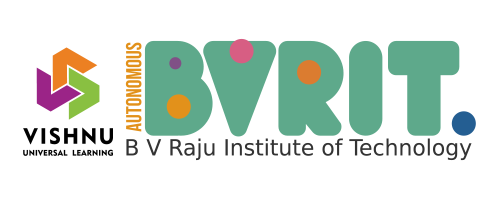Overview.
About Department
Biomedical Engineering (BME) is the application of engineering principles and design concepts to medicine and biology for healthcare purposes. This field seeks to close the gap between engineering and medicine, combining the design and problem-solving skills of engineering with medical biological sciences to advance healthcare treatment, including diagnosis, monitoring, and therapy.
Biomedical engineers use and apply an intimate knowledge of modern biological principles in their engineering design process. Aspects of electrical engineering, mechanical engineering, computer science and engineering, materials science, mathematics, etc. are all integrated with human biology in biomedical engineering to improve human health, whether it is an advanced prosthetic limb or a low-cost medical device.
There are many subdisciplines within biomedical engineering, including the design and development of active and passive medical devices, orthopedic implants, medical imaging, biomedical signal processing, tissue engineering, and clinical engineering, just to name a few.
- The Department of Biomedical Engineering was established in the year of 1997.
- The first private engineering college to start BME in Andhra Pradesh.
- The department offers a bachelor’s program with an intake of 60 students per year.
- Eligibility – MPC & BiPC in Intermediate.
- The department also has a special lab, Assistive Technology Lab established in 2009 in collaboration with UMASS, Lowell, USA.
- Department of Biomedical Engineering has Institutional Membership in the BIOMEDICAL ENGINEERING SOCIETY OF INDIA (BMESI) and (REHABILITATION ENGINEERING AND ASSISTIVE TECHNOLOGY SOCIETY OF NORTH AMERICA (RESNA)
1
Program offered
12
Faculty members
500+
Students graduated
100+
Research papers
Programs Offered
B.Tech in Biomedical Engineering
60
Intake
What do Biomedical Engineers do?
Biomedical engineers work in a wide variety of settings and disciplines. There are opportunities in the industry for innovating, designing, and developing new technologies; in academia furthering research and pushing the frontiers of what is medically possible as well as testing, implementing, and developing new diagnostic tools and medical equipment; and in establishing safety standards for medical devices. Many biomedical engineers find employment in cutting-edge start-up companies or as entrepreneurs themselves.
Internships / Training
The department collaborates with hospitals like KIMS, Apollo, Care, Medwin, NIMHANS, etc. to get students trained latest medical equipment. Students also undergo Summer internships in reputed institutions and organizations like IITs and CSIO-CSIR.
Indian Biomedical Skill Consortium (IBSC)
Dept. of Biomedical Engineering is a partner in IBSC which was initiated by Andhra Pradesh MedTech Zone (AMTZ) to put in place an equivalence system of value-based assessment covering educational training, work experience, and competency possessed by practitioners of biomedical engineering skills.
Vision
To achieve excellence in undergraduate education, meaningful & innovative research, and service dedicated to advancing the field of biomedical engineering and human health.
Mission
The mission of the biomedical undergraduate engineering program is:
M1. To pursue excellence in biomedical engineering education and research by providing positive and professional, high-quality, relevant education using current technological and educational techniques.
M2. To inspire the student community to work in cohesion that exemplifies the core and ethical values for the purpose of improving and developing systems that solve complex problems and improve the quality of life.
M3. To develop students’ skills to effectively communicate, analyze, create, and link knowledge in the multi-disciplinary fields, with the emphasis on quantitative approaches and methods.
Programme Educational Objectives (PEOs)
P1. To develop the concepts of engineering in design and product realization to meet the needs of industry and organizations.
P2. To demonstrate the ability to work effectively as a responsible professional in a team and as an individual.
P3. To have an understanding of the importance of life-long learning and professional development with a background that allows pursuing advanced studies in BME or related fields.
Programme Outcomes (POs)
The students at the end of the program are expected to have attained the following:
Engineering knowledge: Apply the knowledge of mathematics, science, engineering fundamentals, and an engineering specialization to the solution of complex engineering problems
Problem analysis: Identify, formulate, review research literature, and analyze complex engineering problems reaching substantiated conclusions using first principles of mathematics, natural sciences, and engineering sciences.
Design/development of solutions: Design solutions for complex engineering problems and design system components or processes that meet the specified needs with appropriate consideration for public health and safety, and the cultural, societal, and environmental considerations
Conduct investigations of complex problems: Use research-based knowledge and research methods including design of experiments, analysis, and interpretation of data, and synthesis of the information to provide valid conclusions
Modern tool usage: Create, select, and apply appropriate techniques, resources, and modern engineering and IT tools including prediction and modeling to complex engineering activities with an understanding of the limitations
The engineer and society: Apply to reason informed by the contextual knowledge to assess societal, health, safety, legal and cultural issues and the consequent responsibilities relevant to the professional engineering practice.
Environment and sustainability: Understand the impact of the professional engineering solutions in societal and environmental contexts, and demonstrate the knowledge of, and need for sustainable development.
Ethics: Apply ethical principles and commit to professional ethics and responsibilities and norms of the engineering practice.
Individual and teamwork: Function effectively as an individual, and as a member or leader in diverse teams, and in multidisciplinary settings.
Communication: Communicate effectively on complex engineering activities with the engineering community and with society at large, such as being able to comprehend and write effective reports and design documentation, make effective presentations, and give and receive clear instructions.
Project management and finance: Demonstrate knowledge and understanding of the engineering and management principles and apply these to one’s own work, as a member and leader in a team, to manage projects and in multidisciplinary environments.
Life-long learning: Recognize the need for and have the preparation and ability to engage in independent and life-long learning in the broadest context of technological change
Program Specific Outcomes
PSO1:Focused experience through hospital training and undergraduate projects in one and more areas of advanced research
PSO2:Make measurements or interpret data from living systems, addressing the problems associated with the interaction between living and non-living materials and systems,










